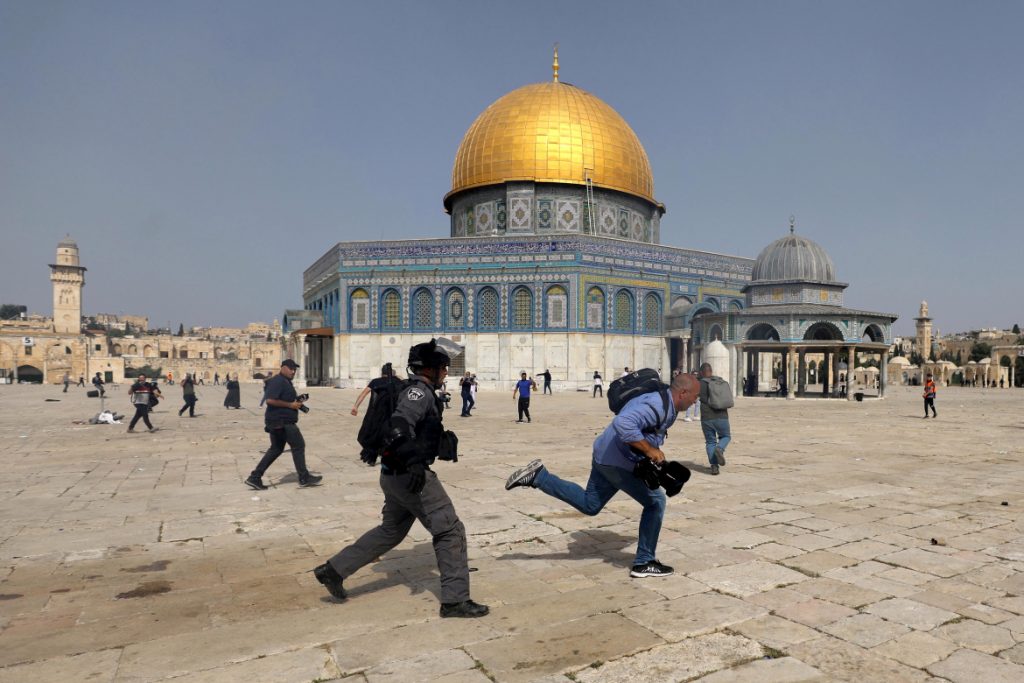Virendra Pandit
New Delhi: Seven years after the 2014 Israeli-Hamas conflict, the Levant region in the Middle East is burning, yet again. But this time the reasons are different: it is little of an Arab-Israeli conflict, and more of Turkey-Iran combine pushing the Arabs to condemn the Jewish state with which the United Arab Republic (UAE) signed the “Abraham Accords” in September 2020 in Washington organized by then President Donald Trump.
Although Iran-supported militant group Hamas may have attacked Israel, the role of Turkey as the actual sponsor of the conflict is suspected. In fact, soon after the hostilities broke out, Ankara launched attempts to line up non-Arab Muslims. It aims to create a non-Arab sub-group within the 57-member Organization of Islamic Cooperation (OIC) and wrest the leadership of the Muslim Brotherhood from Saudi Arabia where the OIC is headquartered.
Ever since Recep Tayyip Erdogan became Turkey’s President in 2014, and reinstated the country as an Islamic one rather than a secular one, geopolitics in this region has taken a U-turn. Erdogan is trying to resurrect the Ottoman Empire which died in 1924. But the Arabs, enjoying freedom from the Turks for a century, are not ready to get their sheikhdoms reabsorbed by the Empire.
This has divided the Muslim world vertically into two camps: the Arabs and the non-Arabs. The 22 Arab countries are scouting for new support systems outside the OIC where non-Arabs, 35 countries, outnumber the Saudi-led Arabs.
That was why the UAE, with subtle support of the Saudis, signed the Abraham Accords, bought peace with Jerusalem, and Israeli PM Benjamin Netanyahu paid a not-so-secret visit to Saudi Arabia a few months ago.
The Hamas attack on Israel is part of Turkey’s attempts, with Iran’s (and Pakistan’s and Malaysia’s) support to split the OIC so as to accelerate the regeneration of the dead Ottoman Empire.
Even a Shia-led Iran is supporting this resurrection of a Sunni-led Ottoman Empire and the Caliphate that will go with it. In fact, the Sunni Ottoman and Shia Iranian empires co-existed for five centuries. Tehran would like to see the Turks subjugate the Arabs once again.
But there is one problem: the Ottoman Empire extended to parts of Eastern and Central Europe—and they are now under the security umbrella of the North Atlantic Treaty Organization (NATO)!
That does not stop Turkey and Iran to disturb the Arabs’ applecart.
Hence the current conflict. It aims at Israeli retaliation against the Palestinians and cornering the Arabs.
Israel has long accused Hamas of using civilians as human shields against retaliatory strikes; militants often launch rockets from civilian areas and set up command centers inside residential buildings. Yet Jerusalem was heavily criticized for its tactic of bombing buildings during the 2014 war with Hamas.
As Hamas and other militant groups fired hundreds of rockets into Israeli cities, including Tel Aviv, killing at least seven Israelis, worries grew that the latest violence could spiral into a protracted conflict. The Hamas barrages sent hundreds of thousands of Israelis running to bomb shelters across the country and hit numerous civilian targets, including a bus and a school in the city of Ashkelon that was empty because authorities had ordered all schools closed, media reports said.
This week’s mayhem stemmed from clashes at the most sensitive place in Jerusalem, the revered plateau site of Al-Aqsa Mosque and the iconic golden Dome of the Rock. Analysts long have considered flaring tensions at the compound, sacred to both Muslims and Jews, to be the most dangerous accelerant to the Israeli-Palestinian conflict.
The Al-Aqsa Mosque in Jerusalem is the third holiest Islamic shrine after Mecca and Medina. Clearly, Hamas is challenging the Arabs either to condemn their ‘new friend’ Israel and scrap the Abraham Accords, or risk alienation within the OIC before their expulsion.

